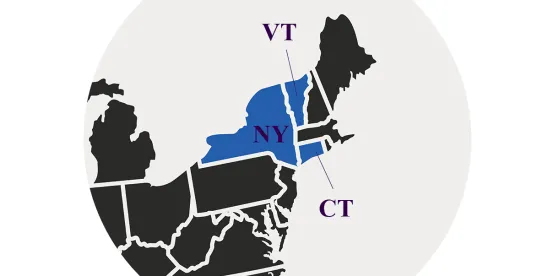One court recently held that the failure to produce a privilege log for responsive documents withheld from discovery resulted in a waiver of privilege and warranted sanctions under Rule 37(b)(2). Coker, et al. v. Goldberg & Associates P.C., et al., 2024 WL 263121 (S.D.N.Y. 2024). This case is an important reminder to practitioners.
Factual Background
Plaintiff Sade Coker worked for law firm Goldberg & Associates, P.C. (the Firm) as an executive assistant to its principal attorney for approximately five weeks in 2020. On March 2, 2021, plaintiff sued the Firm and the principal, alleging claims under both the Fair Labor Standards Act and the New York Labor Law. Specifically, plaintiff alleged she was not paid time-and-a-half for her overtime hours, or spread-of-hours pay, and was fired after asking for overtime.
Defendants claimed plaintiff was an exempt employee – invoking the administrative exemption – and not entitled to any overtime or spread-of-hours pay on top of her salary. Defendants further asserted they “acted in good faith,” and without “willfulness or intent” to violate the law, and therefore were shielded from liquidated damages.
Relevant Procedural Background
The decision discussed below is the result of plaintiff’s letter-motion seeking significant sanctions – up to and including the entry of a default judgment – for defendants’ allegedly deficient interrogatory responses and incomplete production of relevant audio files from a messaging app, which were long sought in discovery.[1]
On March 27, 2023, District Judge Jennifer L. Rochon ordered defendants to produce “the items they agreed to produce forthwith, but no later than April 7, 2023.” Two weeks later, during a pretrial conference, Judge Rochon ordered defendants to “produce all outstanding discovery no later than April 13, 2023,” or “face possible sanctions.” On April 12, 2023, defendants asked for an extension, until April 17, 2023, to complete their production. Judge Rochon granted the motion in a memo endorsement, ordering defendants to “complete all discovery no later than April 17, 2023,” and directing their counsel to “inform their client regarding the potential for sanctions if discovery is not fully produced” by that date.
As Magistrate Judge Moses notes in this decision, “None of the District Judge’s orders identified the specific documents, items, or categories of documents or information that defendants were required to produce.”
Current Motion
On April 28, 2023, plaintiff filed a motion seeking sanctions based on deficiencies in the production defendants made in response to the court’s April 13 Order (the Motion). The Motion – a six-page letter attaching a one-page appendix, and 156 pages of exhibits – asserted that defendants’ supplemental production in response to the April 13 Order did not include (i) certain audio files exchanged between plaintiff and the principal via the messaging app; and (ii) “information which could have [a] bearing on” defendants’ good-faith defense, including app messages that may have been exchanged “between and amongst HR, exec team and/or attorney re: exemption.” Plaintiff also took issue with defendants’ dilatory approach to discovery throughout litigation, including their repeated failure to meet deadlines set by the District Judge. This conduct, according to plaintiff, was out of compliance with “several of Rule 11(b)’s provisions.” Plaintiff – who ultimately sought a “default judgment [as to] liability assessed against the defendants at this juncture” – did not cite any other rule or statute as the basis for the Motion.
Defendants filed a two-page opposition, arguing they did the best they could to “provide the extensive discovery that plaintiff has demanded” while protecting the confidentiality of their own clients, and reiterating they were “not refusing to turn over any documents, we are merely experiencing delays in a manner that is not unusual, given the circumstances.” Defendants attached 66 pages of “previous discovery responses,” and a declaration signed by the principal, attesting that she went through her app’s messages and “turned over every single picture, message, and voice text that did not have attorney-client confidential information.” Plaintiff did not file a reply letter.[2]
Analysis
Rule 11
The court dismissed plaintiff’s request for sanctions to the extent predicated upon Rule 11. First, Rule 11(d) “excludes from the purview of Rule 11 sanctions, discovery responses and motions that are subject to the provisions of Rules 26 through 37 of the Federal Rules of Civil Procedure.” Moreover, when filing her motion, plaintiff failed to comply with Rule 11(c)(2)’s safe harbor provision. Thus, the court held that to the extent plaintiff moves under Rule 11, no relief can be granted. Specifically, the court noted, “Plaintiff’s failure to comply with the safe harbor provision prevents the Court from ruling on the merits of the motion because the motion must be denied.”
Rule 37(b)(2)
Even though plaintiff did not identify any other rule or statute under which she sought sanctions, the court construed the motion as made under Rule 37(b)(2), which governs sanctions for “not obeying a discovery order.” The court noted that the only predicates to the imposition of sanctions under Rule 37(b) are a “court order directing compliance with discovery requests” and “non-compliance with that order.” And once a party has demonstrated its entitlement to sanctions, the court has “broad discretion” in selecting an appropriate remedy among those available. The court noted, however, “two basic limitations” that cabin the court’s discretion – the sanctions must be just and must relate to the particular claim to which the discovery order was addressed.
The court then turned specifically to the messaging app audio files. First, those files that were withheld as privileged and then those files that were withheld as not responsive.
Defendants admitted in their opposition letter that they withheld certain messaging app audio files because they were “protected by attorney-client privilege,” but never supported their privilege claim with a log, as required. And so, the court found that a party has not completed all discovery[3] if it has withheld responsive documents on privilege grounds but has failed to produce a privilege log given the mandate of Rule 26(b)(5) (“[w]hen a party withholds information otherwise discoverable by claiming that the information is privileged,” it must “describe the nature of the documents, communications, or tangible things not produced … in a manner that, without revealing information itself privileged or protected, will enable other parties to assess the claim.”). Therefore, the issue before the court was what sanction would be “just” for defendants’ failure to log the privileged messaging app audio files. After weighing all the factors, the court concluded defendants could not maintain their privilege defense as to the remaining app audio files. Rather, they would be deemed to have waived privilege and required to produce the files. However, recognizing those files might contain sensitive information about the firm’s clients and cases, the court ordered that the audio files be produced on an attorneys’-eyes-only basis.
As to the documents arguably relevant to the good-faith defense, the court found plaintiff’s letter failed to convince it that defendants withheld any such documents. The possibility that defendants withheld discoverable documents was not a sufficient foundation for the dispositive sanctions sought. However, given that good faith is an affirmative defense that defendants must prove, the court decided a preclusion order would be appropriate, to prevent defendants from benefitting from any failure to produce relevant evidence timely, and to protect plaintiff from unfair surprise. Consequently, defendants were precluded from using any information they had not produced as evidence of the good faith defense for which they bear the burden of proof at trial.
Conclusion
This case is rich with important reminders. First, the case makes plain that an order is an order. In other words, a judge need not rattle off all the items a party must produce before the party can be found to have violated discovery obligations for purposes of Rule 37(b)(2). Indeed, it was sufficient here for the court to say that “all discovery” must be produced by a date certain for sanctions to be awarded for failure to provide a privilege log. Second, the court sua sponte invoked its Rule 37 authority. Plaintiff didn’t raise Rule 37 as a basis for sanctions. Third, privilege logs are not optional. The production of a privilege log is a critical last step for a document production.
[1] The motion before the court followed a series of letter applications to compel discovery from plaintiff, in which plaintiff repeatedly raised that “defendants were dragging their feet” in discovery and demonstrating how defendants’ discovery responses were incomplete. Defendants’ response to those letter motions was always the same: they were working on it and would comply as soon as they were able to. This response was interesting t considering the timing obligations set forth in Rule 34, which require production of documents within 30 days of a request barring an agreement to the contrary.
[2] Plaintiff did file a summary judgment motion soon after arguing that the undisputed evidence – including the app messages and other documents produced by Defendants in discovery – showed plaintiff served as a “runner, a go-fer, a ‘do-as-directed’-er,” working under the close supervision of the law firm and others, and therefore that she did not qualify for the administrative exemption and should have been paid a premium for her overtime hours. Plaintiff further argued the court should accept plaintiff’s timesheets as an accurate record of her actual hours worked, including 61 overtime hours during her five-week tenure at the Firm, and award her a total of $4,986.14 ($2,493.07 in unpaid overtime wages and another $2,493.07 in liquidated damages) “for the overtime aspect of [her] claim.” Nowhere in these papers did plaintiff state or even suggest that defendants’ alleged discovery deficiencies hampered her evidentiary showing.
[3] The April 13 Order did not explicitly direct defendants to produce the audio files underlying their app messages, but rather directed that they “complete all discovery.”



 />i
/>i
